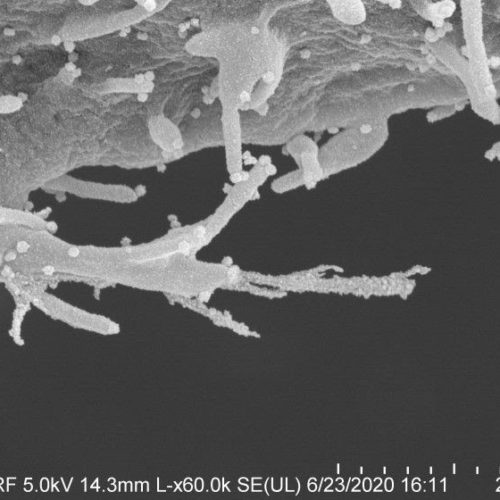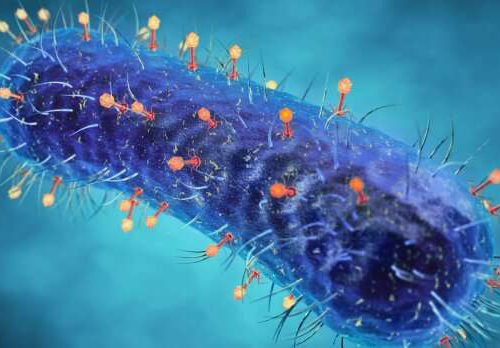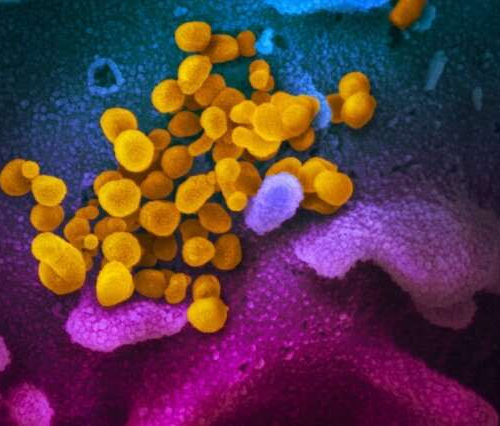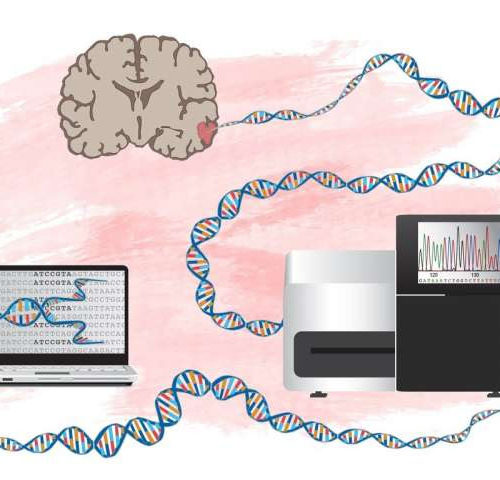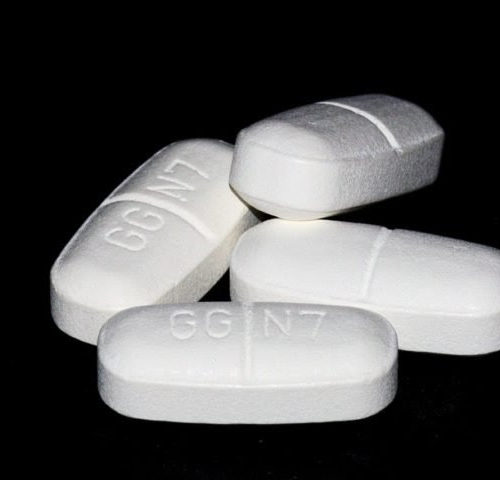A little-known non-toxic antiseptic developed in the Soviet Union during the Cold War has enormous potential to beat common infections, say University of Manchester scientists. Miramistin, developed for the Soviet Space Program and little known in the West, can inhibit or kill influenza A, human papilloma viruses that cause warts, coronaviruses, adenoviruses, and human immunodeficiency...
Tag: <span>Microbiology</span>
Inside the body, the coronavirus is even more sinister than scientists had realized
Melissa Healy, June 26, 2020, 8:00 AM MST The new coronavirus’ reputation for messing with scientists’ assumptions has taken a truly creepy turn. Researchers exploring the interaction between the coronavirus and its hosts have discovered that when the SARS-CoV-2 virus infects a human cell, it sets off a ghoulish transformation. Obeying instructions from the virus,...
New adjuvant successful in extending immunity against HIV
ATLANTA – Researchers at the Yerkes National Primate Research Center and the Emory Vaccine Center (EVC) are first to show a new adjuvant, 3M-052, helps induce long-lasting immunity against HIV. The study results are published today in Science Immunology. In this pre-clinical study that included 90 rhesus monkeys, the researchers showed 3M-052, a new, synthetic...
Bacterial predator could help reduce COVID-19 deaths
by University of Birmingham A type of virus that preys on bacteria could be harnessed to combat bacterial infections in patients whose immune systems have been weakened by the SARS-CoV-2 virus that causes the COVID-19 disease, according to an expert at the University of Birmingham and the Cancer Registry of Norway. Called bacteriophages, these viruses...
Researchers say genetics may determine wound infection and healing
A recent study led by Texas Tech’s Department of Biological Sciences and Natural Science Research Laboratory determined that certain genes are associated with the pathogens that infect chronic wounds and hinder the healing process. CALEB PHILLIPS; ASSISTANT PROFESSOR OF BIOLOGICAL SCIENCES AND DIRECTOR OF THE PHILLIPS LABORATORY, COLLEGE OF ARTS & SCIENCES; CURATOR OF GENETIC...
SARS-CoV-2: New insights on antibody testing and RNA testing
Washington, DC – June 20, 2020 – Two types of tests are used to track SARS-CoV-2. Reverse transcriptase PCR (rt-PCR) tests for current infection. Antibody tests reveal that an infection has taken place, even long after the fact. Each of 2 papers published in the Journal of Clinical Microbiology (JCM) addresses one of these testing...
Nanosponges could intercept coronavirus infection
UNIVERSITY OF CALIFORNIA – SAN DIEGO Nanoparticles cloaked in human lung cell membranes and human immune cell membranes can attract and neutralize the SARS-CoV-2 virus in cell culture, causing the virus to lose its ability to hijack host cells and reproduce. The first data describing this new direction for fighting COVID-19 were published on June...
Researchers identify potent antibody cocktail with potential to treat COVID-19
by Deborah Kotz, University of Maryland School of Medicine Researchers at the University of Maryland School of Medicine (UMSOM) evaluated several human antibodies to determine the most potent combination to be mixed in a cocktail and used as a promising anti-viral therapy against the virus that causes COVID-19. Their research, conducted in collaboration with scientists...
New method created for identifying genes behind brain tumors
by Uppsala University Researchers at Uppsala University have developed a method for identifying functional mutations and their effect on genes relevant to the development of glioblastoma—a malignant brain tumor with a very poor prognosis. The study is published in Genome Biology. The human genome consists of nearly 22,000 genes. Many studies have explored the nearly...
Antibiotic-destroying genes widespread in bacteria in soil and on people
Chemical compound restores tetracycline’s effectiveness by blocking bacterial resistance. The latest generation of tetracyclines — a class of powerful, first-line antibiotics — was designed to thwart the two most common ways bacteria resist such drugs. But a new study from researchers at Washington University in St. Louis and the National Institutes of Health (NIH) has...

